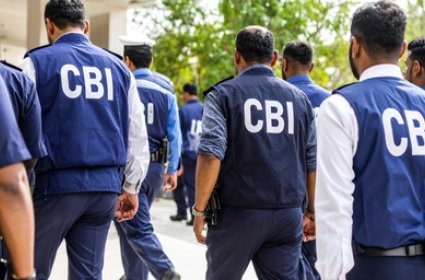Senior Official Accused of Diverting Public Funds to Personal Trading Accounts
DEHRADUN, UTTARAKHAND (India CSR): In a shocking revelation, the Central Bureau of Investigation (CBI) has arrested Rahul Vijay, a senior manager at the Airports Authority of India (AAI), for allegedly embezzling Rs 232 crore from public funds during his tenure at Dehradun Airport. The arrest, made on August 30, 2025, exposes a sophisticated scheme of financial fraud that has sent ripples through India’s aviation sector. This high-profile case underscores the urgent need for stronger oversight in public institutions as the CBI continues to unravel the extent of the misappropriation.
Uncovering a Complex Financial Fraud
The CBI’s investigation was triggered by a complaint from the AAI, which flagged irregularities in financial records from 2019 to 2023, when Vijay served as the senior manager for finance and accounts at Dehradun Airport. According to investigators, Vijay orchestrated a systematic fraud by manipulating electronic and official records. He allegedly created fictitious assets and duplicated legitimate entries, inflating their values—sometimes by simply adding zeros—to evade detection. This allowed him to siphon off approximately ₹232 crore into his personal bank accounts, a scheme that went unnoticed until an internal audit raised red flags.
Modus Operandi: Fictitious Assets and Inflated Entries
A striking example of Vijay’s alleged fraud involved the creation of ₹189 crore in non-existent assets. On September 29, 2021, he recorded genuine assets worth ₹67.81 crore for electrical work on Dehradun Airport’s new terminal building. The following day, he reportedly added 17 fictitious assets totaling ₹189 crore by inflating the value of 13 original assets worth ₹13.58 crore, simply by appending an extra zero. Additionally, ₹43 crore was diverted through fraudulent entries under various revenue expenditure heads, further masking the embezzlement. These manipulations enabled Vijay to transfer massive sums to his personal accounts with minimal scrutiny.
Funds Funneled to Trading Accounts
Preliminary analysis by the CBI revealed that Vijay didn’t stop at diverting funds to his bank accounts. He allegedly transferred significant portions of the misappropriated ₹232 crore into trading accounts for speculative investments, raising concerns about potential money laundering. As an authorized signatory for AAI’s State Bank of India accounts, Vijay is said to have created three separate user IDs to facilitate clandestine transfers. He began with small transactions to test the system before escalating to larger sums, exploiting loopholes in AAI’s financial oversight.
CBI Raids and Arrest in Jaipur
On August 28, 2025, CBI teams conducted searches at Vijay’s official and residential premises in Jaipur, where he was posted as AAI’s finance in-charge at the time of his arrest. The raids yielded incriminating evidence, including documents related to immovable properties and valuable securities suspected to be linked to the fraud. Vijay was apprehended in Jaipur and brought to Dehradun, where he was produced before a special CBI court on August 30, which remanded him to judicial custody. The CBI continues to probe the money trail to identify any accomplices or additional illicit transactions.
Broader Implications for Public Trust
This massive embezzlement case has sparked outrage, highlighting vulnerabilities in the financial systems of public sector organizations like the AAI. The fraud, which spanned over three years, has delayed critical infrastructure projects and eroded public confidence in institutional governance. In response, the AAI has introduced stricter measures, including a robust whistleblower policy and enhanced real-time monitoring of financial transactions to prevent future breaches. Experts warn that such scandals could hinder India’s ambitious aviation expansion plans, which include modernizing airports to handle growing passenger traffic.
Ongoing Investigation and Legal Action
The CBI has booked Vijay under multiple sections of the Indian Penal Code, including criminal conspiracy, breach of trust, forgery, and falsification of accounts, as well as provisions of the Prevention of Corruption Act. The investigation is ongoing, with the agency focusing on tracing the full extent of the diverted funds and identifying potential collusion. Legal experts suggest that, if convicted, Vijay could face significant prison time and asset seizures. The case also underscores the CBI’s broader crackdown on financial fraud, with recent actions targeting cybercrimes and corporate malfeasance across India.
Strengthening Financial Oversight
The AAI, reeling from the scandal, has pledged to overhaul its financial controls. The organization has already implemented mandatory training workshops to sensitize employees to corruption risks and is conducting a comprehensive review of its auditing mechanisms. “This incident is a wake-up call for public institutions to strengthen internal checks and balances,” said aviation analyst Rajesh Menon. With India’s aviation sector projected to grow significantly, ensuring transparency and accountability will be critical to maintaining public trust and supporting infrastructure development.
(India CSR)






















